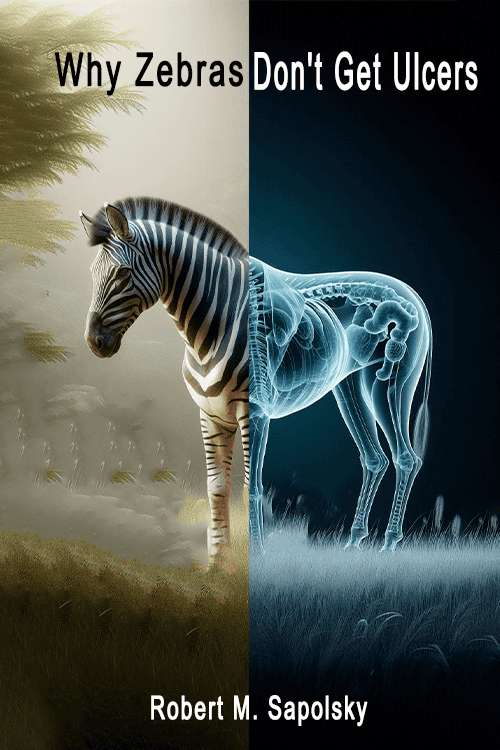About this Author
Robert M. Sapolsky, a renowned professor at Stanford University, specializes in studying stress and neuron degeneration. He was honored with a MacArthur Fellowship in 1987 for his groundbreaking work in the field.
2004
Self-Help
16:14 Min
Conclusion
7 Key Points
Conclusion
Survival instincts in both humans and wild animals are honed by stress, but chronic stress poses health risks. Finding serenity amid challenges and employing positive coping mechanisms is crucial for well-being.
Abstract
Robert M. Sapolsky, a distinguished Stanford professor, delves into the parallels between animal survival instincts and modern human stress. His engaging exploration reveals how the body's stress-response mechanism, evolved for immediate dangers like predators, now grapples with urban pressures. Through vivid comparisons, Sapolsky highlights the toll chronic stress takes on health. However, he doesn't leave readers without hope. Offering practical strategies, from exercise to finding outlets, Sapolsky guides readers toward serenity in today's fast-paced world.
Key Points
- Survival in the wild is stressful, but stress ends quickly after a threat is gone.
- Human stress is often long-lasting, affecting health, mood, and energy levels.
- Chronic stress disrupts body functions, impacting growth, immunity, and heart health.
- The body’s stress response is useful in the short term but harmful when it is constant.
- Social connections, control, and physical activity help reduce ongoing stress.
- Mindfulness, optimism, and emotional outlets provide relief from stress.
- Flexibility and a positive outlook can help manage stress effectively, even in tough times.
Summary
Wild animals like lions, tigers, and Zebraas exist
Life for a zebra in the African savanna might seem simpler than life in a city, but it's a constant battle for survival. Zebraas always have to watch out for big predators like lions or tigers. Whether they're eating, resting, or just walking around, they have to be ready to run at any moment if danger appears. And on the flip side, predators like lions have to be fast and sneaky to catch their prey, or else they'll go hungry. All this running and hunting is super stressful for both sides.
Compare that to most people's lives today. We might not have lions chasing us, but we deal with a different kind of stress. We worry about taxes, getting along with family, feeling like we're not good enough, missing out on opportunities, and so much more. These worries stick with us day after day, causing a different kind of stress.
Picture the scorching plains where Zebraas dash and lions lurk. Here, survival is a race against time. Zebraas are experts at sprinting away from lions, while lions are masters at hunting them down. Both have built-in systems that kick into action during moments of intense danger
Share:



